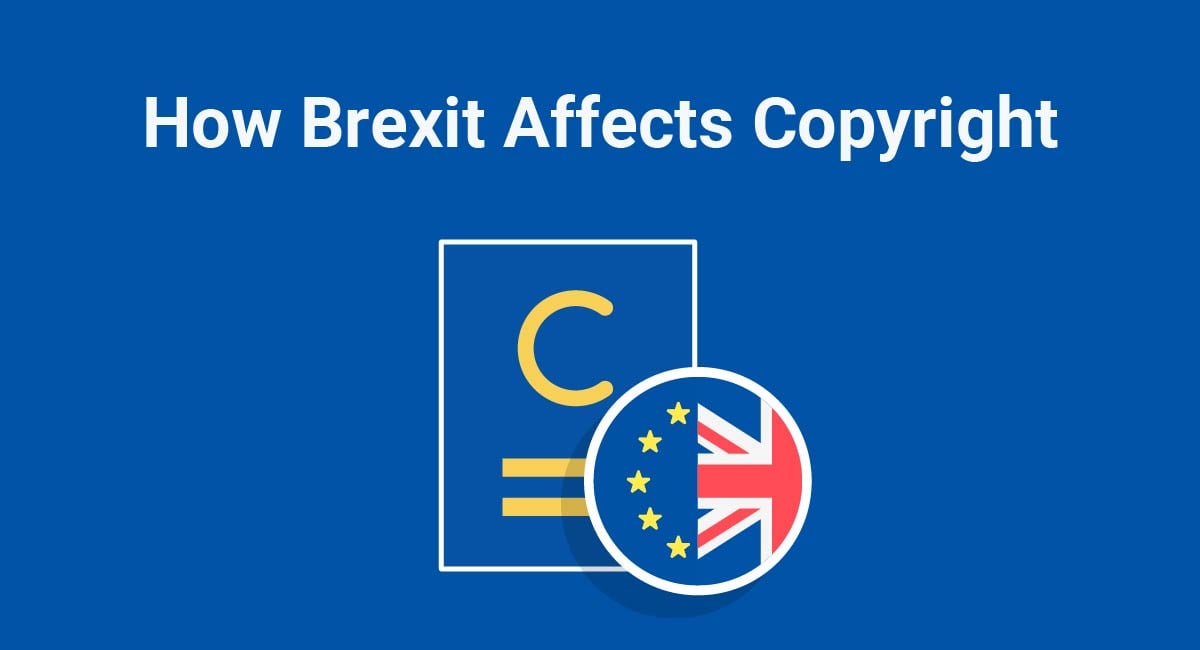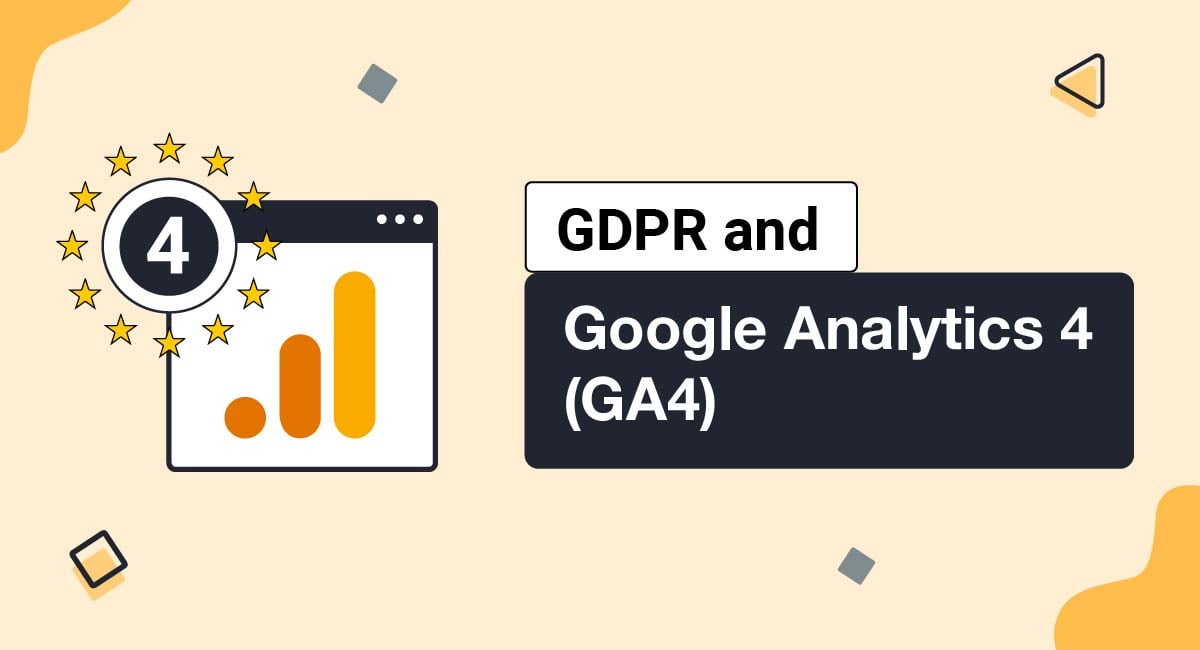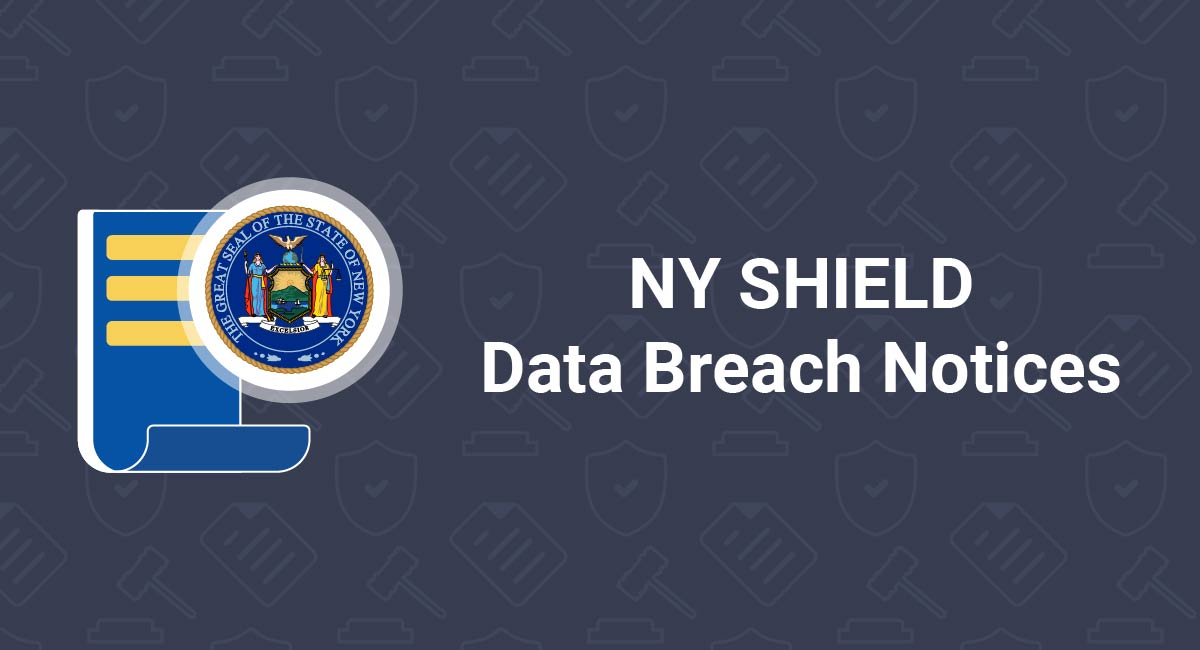Brexit will affect UK businesses in countless ways. A critical impact of Brexit is on copyright law.
Rightsholders, and those dealing with copyrighted works, must consider how they will prepare for the end of the Brexit transition period. Changes are likely to occur in areas such as satellite broadcasting, database ownership, content streaming services, and museums.
In this article, we'll be looking at which sectors could be impacted by the Brexit process, what changes are likely to occur, and what businesses can do to prepare.
What customers say about TermsFeed:
This really is the most incredible service that most website owners should consider using.
Easy to generate custom policies in minutes & having the peace of mind & protection these policies can offer is priceless. Will definitely recommend it to others. Thank you.
- Bluesky's review for TermsFeed. Read all our testimonials here.
With TermsFeed, you can generate:
- 1. Copyright in UK Law
- 2. Definitions
- 3. Sectors Impacted by Changes to Copyright Law After Brexit
- 3.1. Satellite Broadcasters
- 3.1.1. What Might Change From January 1, 2021
- 3.1.2. What Satellite Broadcasters Need to Consider
- 3.2. Database Owners
- 3.2.1. What Will Change From January 1, 2021
- 3.2.2. What Database Owners Need to Consider
- 3.3. Content Providers
- 3.3.1. What Will Change From January 1, 2021
- 3.3.2. What Content Providers Need to Consider
- 3.4. Cultural Heritage Institutions (e.g., Museums, Archives, Libraries)
- 3.4.1. What Will Change From January 1, 2021
- 3.4.2. What Cultural Heritage Institutions Need to Consider
- 3.5. Rightsholders Using EEA Collective Management Organizations (CMOs)
- 3.5.1. What Will Change From January 1, 2021
- 3.5.2. What Rightsholders Need to Consider
- 3.6. Rightsholders of Works Retransmitted Via Cable
- 3.6.1. What May Change From January 1, 2021
- 3.6.2. What Rightsholders Need to Consider
- 4. Summary
Copyright in UK Law
Copyright in the UK is governed by a mix of national law, EU law, and international treaties. When the UK has fully transitioned out of the EU, some of these laws will cease to apply.
EU copyright law consists of 11 directives and two regulations that aim to harmonize copyright standards across the EU. Most of these laws will be incorporated into UK legislation and will continue to apply in the UK, but some will not.
In advance of Brexit, the UK passed the Intellectual Property (Copyright and Related Rights) (Amendment) (EU Exit) Regulations 2019 (available here). This legislation amends UK national law to remove references to the EU, but in most cases, this won't affect how copyright works.
Definitions
Here are some of the terms we'll be using throughout this article:
- EEA: The European Economic Area, consisting of all EU countries, plus Iceland, Liechtenstein, and Norway
- Withdrawal agreement: The treaty between the UK and the EU (and the European Atomic Energy Agency), setting the terms of the UK's withdrawal from the EU
- Transition period: The period during which EU law continues to apply in the UK while the two parties attempt to negotiate a trade deal. The transition period is due to end on December 31, 2020.
Sectors Impacted by Changes to Copyright Law After Brexit

The full impact of Brexit on copyright law depends, in part, on whether the UK and the EU can negotiate a trade deal. If the two parties agree on a trade deal, some EU laws (including those that impact copyright law) may continue to apply after the end of the transition period.
At the time of writing, the UK and the EU have not successfully negotiated a trade deal. If the two parties cannot reach a deal before December 31, 2020 (and there is no extension of the transition period), all EU laws will cease to apply in the UK from January 1, 2021.
Whatever the outcome of the negotiations, we know that post-Brexit changes to copyright law will impact some sectors. Some other sectors are also likely to be affected and should consider making preparations in case of "no deal."
Satellite Broadcasters
Broadcasters must consider copyright law when broadcasting copyrighted works from one country to another.
Unless a copyright treaty covers a broadcaster, it must obtain individual licenses to broadcast copyrighted content (such as a film or TV show) in each country receiving the broadcast.
The EU Satellite and Cable Directive (available here) removes this obligation. Broadcasters in the EEA are not required to obtain licenses covering every EEA country to which they are broadcasting copyrighted works. Instead, EEA broadcasters only need to obtain a license covering the originating country.
So, if a French broadcaster is broadcasting a film to viewers in Spain, Germany, and Poland, it only needs to obtain a license from the copyright holder in France. This is known as the "country-of-origin principle."
What Might Change From January 1, 2021
The UK may not benefit from the country-of-origin principle after the end of the transition period. This means that from January 1, 2021, UK-based satellite broadcasters might need to obtain licenses from rightsholders across multiple EEA countries.
What Satellite Broadcasters Need to Consider
Every UK broadcaster that transmits copyrighted works to EEA countries should consider whether it needs to take action before the end of the transition period.
For each EEA country receiving your broadcasts, check its domestic legislation to see how it treats copyrighted works originating outside of the EEA.
You'll then need to make any appropriate changes to your licensing arrangements so that you can continue to broadcast to each EEA country. This might involve obtaining a license from the rightsholder that covers each country in which you broadcast its works.
Database Owners

Databases are covered by two types of rights: copyright and "sui generis database rights." These rights arise automatically and do not need to be registered by database owners.
- Copyright covers the creative aspects of databases. Under the UK's Copyright, Designs and Patents Act 1988 (available here), copyright arises wherever a database "constitutes the author's own intellectual creation" due to "the selection or arrangement of the contents of the database."
- Sui generis database rights cover the content of databases. Under the EU Database Directive (available here), sui generis database rights arise whenever the database owner has made "a substantial investment in either the obtaining, verification or presentation" of the content.
What Will Change From January 1, 2021
Data copyright rules are governed by international treaties to which both the UK and the EU are signatories. These treaties will not change due to the end of the transition period.
Sui generis database rights in the EEA only apply to EEA citizens, residents, and businesses. However, under the terms of the Withdrawal Agreement, sui generis database rights will not change for databases created before January 1, 2021, either in the UK or the EEA.
For new databases created after January 1, 2021:
- UK database owners will no longer benefit from sui generis database rights in the EEA
- EEA database owners will no longer benefit from sui generis database rights in the UK
What Database Owners Need to Consider
If you create a database after January 1, 2021, you'll need to find an alternative means of protecting its content. This might mean introducing contractual restrictions or licensing agreements with EEA companies (or if you're an EEA database owner, UK companies).
Content Providers

Content providers, including video-streaming services such as Netflix, HBO, and Amazon Prime, require licenses to provide copyrighted works to their users.
Licenses for audiovisual content are normally territory-specific, meaning that content providers must restrict users' access to content in any territories for which they do not have an appropriate license.
EEA consumers benefit from the EU Portability Regulation (available here), which allows consumers travelling between EEA countries to access content in the same way in each country.
The EU Portability Regulation means that a content provider no longer needs to obtain a new license when a user temporarily travels to an EEA country.
What Will Change From January 1, 2021
After the end of the transition period, the EU Portability Regulation will no longer apply to UK consumers. Content providers will no longer need to provide content to:
- UK consumers who are traveling to the EEA
- EEA consumers who are traveling to the UK
What Content Providers Need to Consider
If you wish to continue providing content to UK consumers traveling to an EEA country you must ensure you have obtained an appropriate license from the relevant rightsholders covering each specific territory.
If you wish to continue provident content to EEA consumers traveling to the UK, you'll need to obtain a license from the relevant rightsholders that covers the UK.
Cultural Heritage Institutions (e.g., Museums, Archives, Libraries)

Brexit will impact the way cultural heritage institutions, such as museums, archives, and libraries, use "orphan works."
Orphan works are copyrighted works with no clear rightsholder or a rightsholder that cannot be found. Even though there is no way to obtain permission to use orphan works, they are still covered by copyright law and, therefore, cannot be used freely.
Cultural heritage institutions in the EEA benefit from the EU Orphan Works Directive (available here), which allows them to digitize and display orphan works across the EEA without permission.
What Will Change From January 1, 2021
After the end of the transition period, UK cultural heritage institutions will no longer be able to digitize or make available orphan works, either in the UK or the EEA, on the basis of the current exemption. If they do so, they could be taken to court by the rightsholder.
This change also applies to works that were digitized or made available either before or after January 1, 2021.
Cultural heritage institutions currently register orphan works on the European Union Intellectual Property Office (EUIPO) database. After the end of the transition period, they won't be able to use this database.
Cultural heritage institutions must conduct a "diligent search" for the rightsholder before using an orphan work. Currently, this includes searching the EUIPO database. After the end of the transition period, searching the EUIPO database will no longer be necessary as part of a diligent search.
What Cultural Heritage Institutions Need to Consider
You'll need to take down any orphan works you've made available (e.g., online) using the EUIPO database. You can then use the UK's orphan works licensing scheme if you want to continue exhibiting these works.
If you only have a license to display the works in the UK, you should apply geographical restrictions to these works on your website to help ensure people can't access them outside of the UK.
Rightsholders Using EEA Collective Management Organizations (CMOs)

Brexit will affect how EEA collective management organizations (CMOs) represent the interests of UK rightsholders.
CMOs are nonprofits that represent rightsholders collectively, such as the Association of European Performers' Organisations or the Recording Industry Association of America.
CMOs in EEA countries must comply with the EU Collective Rights Management Directive (CRM Directive, available here), or whatever version of it exists in national law. The CRM Directive requires CMOs to represent rightsholders irrespective of the EEA country in which they are based.
What Will Change From January 1, 2021
After the end of the transition period, EEA CMOs will no longer have to represent UK rightsholders. However, because the UK's version of the CRM Directive will remain in force, UK CMOs will still need to represent EEA rightsholders for multi-territorial licensing purposes.
What Rightsholders Need to Consider
If you're using the services of EEA-based CMOs to negotiate licenses should find out whether the CMO will continue to represent you following the end of the transmission period.
If your CMO will no longer represent you after January 1, 2021, you should consider negotiating individual licensing agreements with EEA licensees.
Rightsholders of Works Retransmitted Via Cable

Under the EU Satellite and Cable Directive (available here), rightsholders of works broadcast across the EEA and retransmitted via cable in EEA countries may only exercise their copyright through a CMO. This rule is in place to simplify the licensing process for cable operators.
What May Change From January 1, 2021
After the end of the transition period, EEA countries may choose not to apply the CMO rule to works broadcast in the UK and retransmitted in the EEA. The rule will continue to apply to works broadcast in the EEA and retransmitted in the UK.
What Rightsholders Need to Consider
After the transition period, EEA countries may treat the UK in the same way as they treat other non-EEA countries in this respect.
If your copyrighted works are broadcast in the UK and retransmitted in the EEA, you may need to negotiate individual licensing agreements with cable broadcasters.
Summary
After the end of the transition period:
- Satellite broadcasters may need to negotiate individual licenses for broadcasting from the UK to each EEA country
- UK database owners will lose their sui generis database rights in the EEA
- Content providers will no longer be allowed to stream copyrighted content to UK users travelling to the EU
- UK cultural heritage institutions will no longer be able to rely on the EU Orphan Works Directive, either in the UK or the EEA
- UK rightsholders using an EEA CMO might no longer be entitled to its services
- Rightsholders of works broadcast in the UK and retransmitted in the EEA may need to negotiate licenses on an individual basis

Comprehensive compliance starts with a Privacy Policy.
Comply with the law with our agreements, policies, and consent banners. Everything is included.




